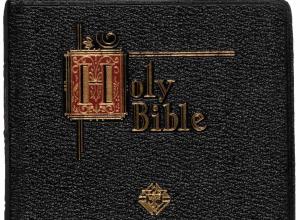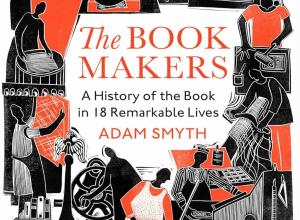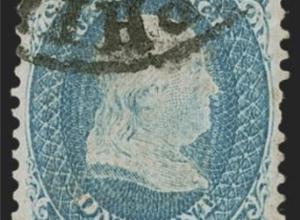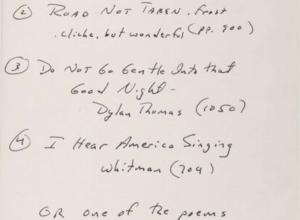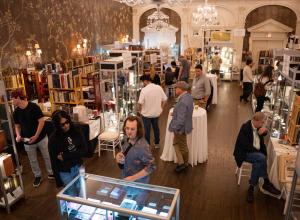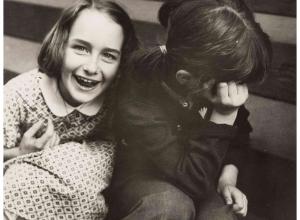Presidential Bookshelf
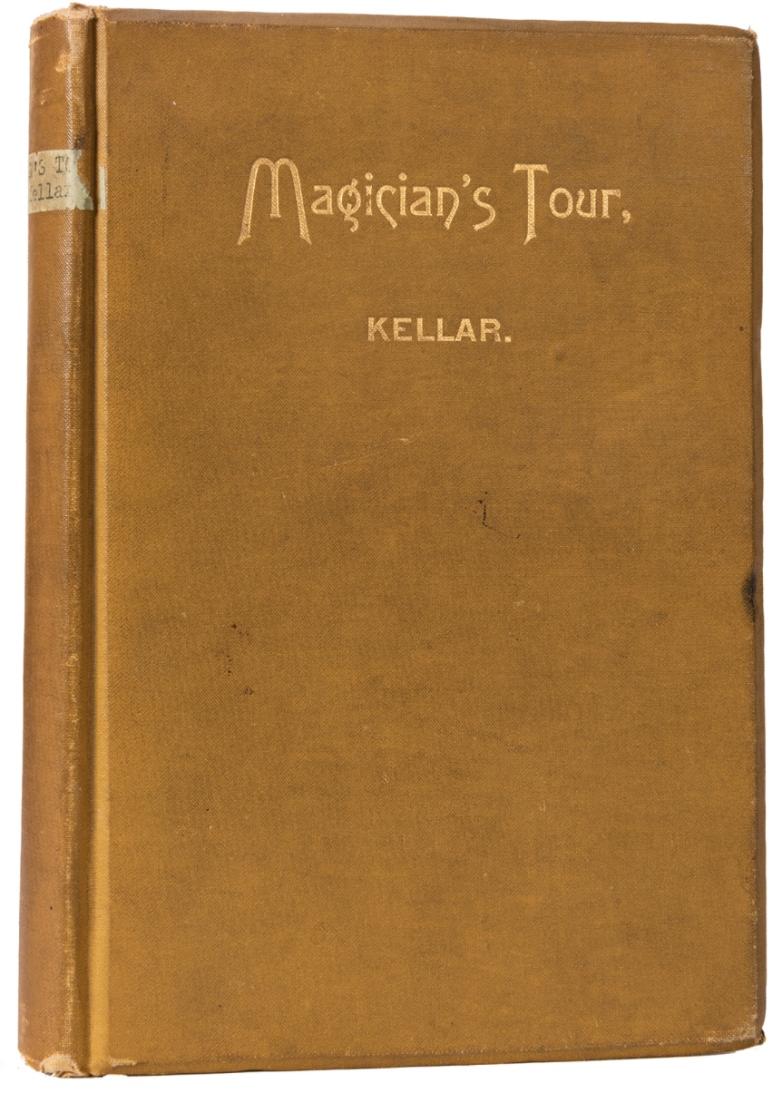
Courtesy of Potter & Potter
A Magician’s Tour. Howard Thurston Presentation Copy. Sold for $16,800.
Much has been made over the past couple of weeks on the matter of two presidents--one being sworn in tomorrow, the other heading back to Texas after eight years in the Oval Office--and what they have read, or what at the very least they are said by others to have read.

Quite apart from this, of course, has been the widely discussed influence of "Team of Rivals," Doris Kearns Goodwin's book about the way Abraham Lincoln selected a cabinet of independent thinkers, on Obama's own policy of reaching out to former opponents to staff his inner circle, a circumstance that has propelled a book published four years ago back to the top of all major best seller lists.
On the matter of George W. Bush, there has been, in the waning days of his administration, a determined attempt by Karl Rove--the former chief adviser to the 43rd president and the proclaimed "architect" of both his presidential victories--to depict his former boss as a voracious devourer of books with whom he maintained a running competition to see who could read more. "There is a myth perpetuated by Bush critics that he would rather burn a book than read one," Rove lamented in an OpEd piece for the Wall Street Journal. "Mr Bush loves books, learns from them, and is intellectually engaged by them."
My 2005 book, "Every Book Its Reader: The Power of the Printed Word to Stir the World," examined what important and influential people have read through history, and included an extended riff on presidents; I write, for instance, about how much we can learn about John Adams--according to David McCullough, the greatest presidential reader of them all, superior, in his view, even to the outstanding "bibliophile president," Thomas Jefferson--by reading the copious annotations he carefully penned in the margins of his books, which are now housed in the Boston Public Library, and which were the subject of a fabulous exhibition there a couple of years ago. (A Fine Books & Collections column I wrote about this is included in "Editions & Impressions.")
To mark the bicentennial of the birth of Abraham Lincoln next month, I will have in the forthcoming issue of the FB&C newsletter an appreciation of the books this most famous of self-educated Americans used to prepare himself for greatness, most notably one work in particular he walked twelve miles to acquire as a young man in New Salem, Illinois. I call the essay "Honest Abe's Book of Grammar."
Whether we are what we read is a judgment we must all make for ourselves; I, for one, subscribe to the old saw wholeheartedly.

Barack Obama arrived in Bozeman, Mont., for a campaign rally in May 2008 carrying Fareed Zakaria's "The Post-American World."
Doug Mills/The New York Times
The most penetrating piece thus far, by the Pulitzer Prize winning critic Michiko Kakutani, appears in today's New York Times, and focuses on the books that have helped to shape the character and inform the evolving convictions of Barack Obama. She cites specific works Obama has discussed in his autobiography, "Dreams From My Father"--the writings of James Baldwin, Ralph Ellison, Langston Hughes, the Bible, Shakespeare, Melville, Toni Morrison among them-- as having been particularly influential. "Mr Obama tends to take a magpie approach to reading," Kakutani writes, "ruminating upon writers' ideas and picking and choosing those that flesh out his vision of the world or open promising new avenues of inquiry." Quite apart from this, of course, has been the widely discussed influence of "Team of Rivals," Doris Kearns Goodwin's book about the way Abraham Lincoln selected a cabinet of independent thinkers, on Obama's own policy of reaching out to former opponents to staff his inner circle, a circumstance that has propelled a book published four years ago back to the top of all major best seller lists.
On the matter of George W. Bush, there has been, in the waning days of his administration, a determined attempt by Karl Rove--the former chief adviser to the 43rd president and the proclaimed "architect" of both his presidential victories--to depict his former boss as a voracious devourer of books with whom he maintained a running competition to see who could read more. "There is a myth perpetuated by Bush critics that he would rather burn a book than read one," Rove lamented in an OpEd piece for the Wall Street Journal. "Mr Bush loves books, learns from them, and is intellectually engaged by them."
My 2005 book, "Every Book Its Reader: The Power of the Printed Word to Stir the World," examined what important and influential people have read through history, and included an extended riff on presidents; I write, for instance, about how much we can learn about John Adams--according to David McCullough, the greatest presidential reader of them all, superior, in his view, even to the outstanding "bibliophile president," Thomas Jefferson--by reading the copious annotations he carefully penned in the margins of his books, which are now housed in the Boston Public Library, and which were the subject of a fabulous exhibition there a couple of years ago. (A Fine Books & Collections column I wrote about this is included in "Editions & Impressions.")
To mark the bicentennial of the birth of Abraham Lincoln next month, I will have in the forthcoming issue of the FB&C newsletter an appreciation of the books this most famous of self-educated Americans used to prepare himself for greatness, most notably one work in particular he walked twelve miles to acquire as a young man in New Salem, Illinois. I call the essay "Honest Abe's Book of Grammar."
Whether we are what we read is a judgment we must all make for ourselves; I, for one, subscribe to the old saw wholeheartedly.





